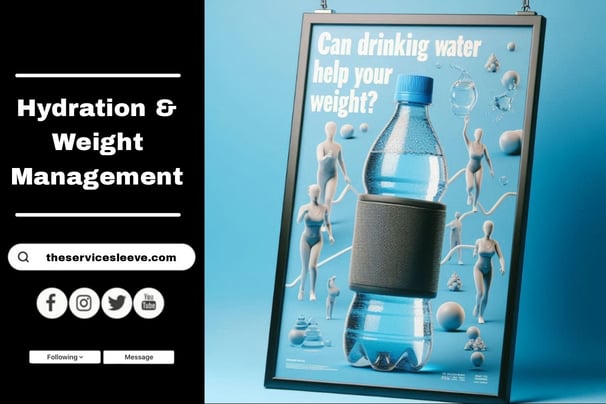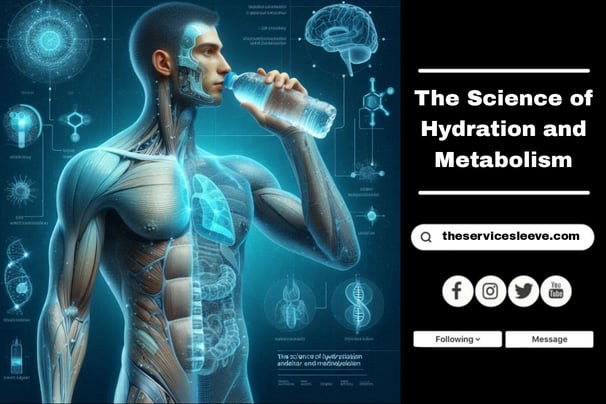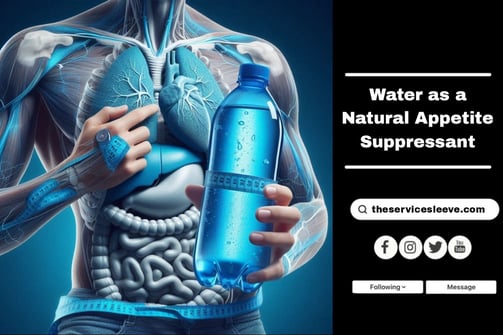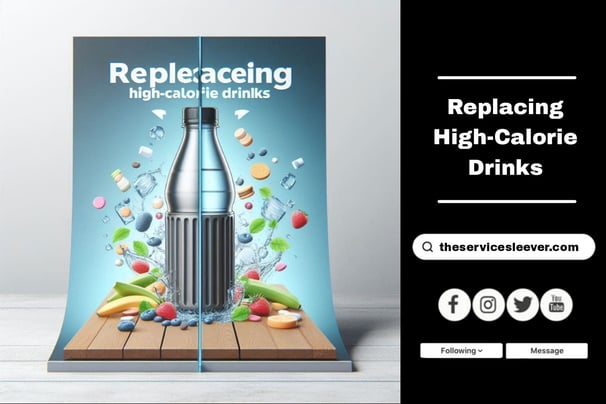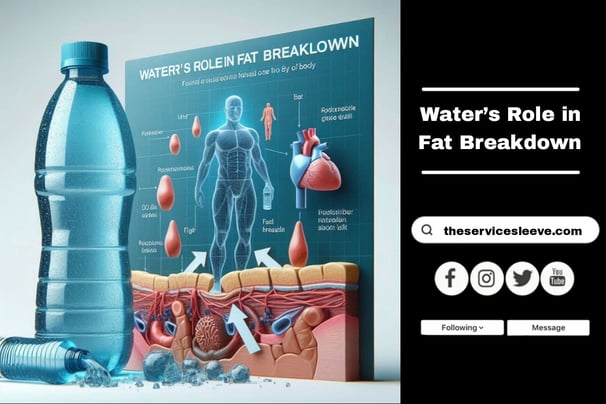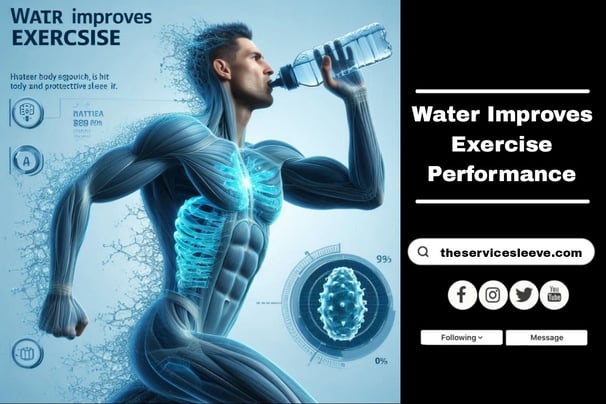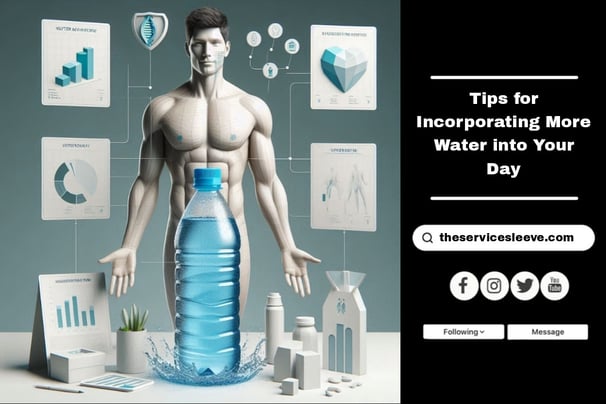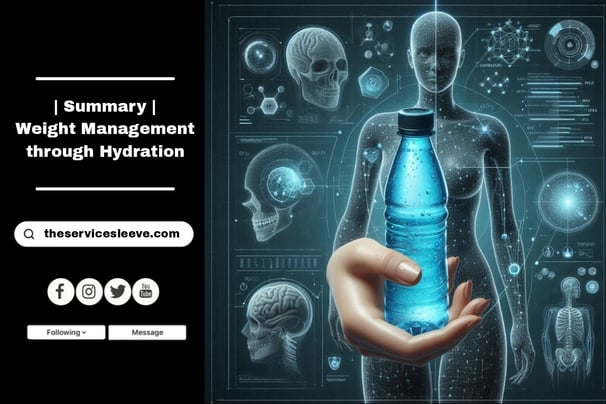Weight Management Through Hydration
Discover effective tips for weight management through hydration. Learn how water boosts metabolism, controls appetite, and improves exercise performance.
HYDRATION
Can Drinking Water Help You Lose Weight?
Did you know that the simplest tool for losing weight might be sitting right in front of you? Water, which is typically disregarded in most weight loss programs, is essential for increasing metabolism, decreasing appetite, and aiding in fat breakdown. Weight management through hydration is a science-backed method that can enhance your weight loss efforts without drastic diet changes.
Hydration is often underestimated when it comes to losing those extra pounds. Maintaining proper hydration levels not only supports vital physiological processes but also creates the conditions for better weight control. Weight management through hydration provides substantial benefits that go beyond simply soothing your thirst, such as increasing your metabolism and preventing you from munching excessively.
This article will go into great detail about how drinking water impacts your body's capacity to reduce fat, curb hunger, and enhance workout performance. You’ll discover the surprising impact of weight management through hydration, backed by science and practical tips to make staying hydrated a key part of your daily routine
The Science of Hydration and Metabolism
The science behind weight management through hydration is obvious. Drinking water directly increases your metabolism. Your body uses your metabolism to turn food and fat reserves into energy, and maintaining proper hydration helps make sure that this process happens as smoothly as possible. But how exactly does water affect metabolism and support weight loss?
Water and Thermogenesis:
One of the key ways that weight management through hydration works is through a process called thermogenesis. This is a reference to the heat that your body generates. When you consume water, particularly cold water, your body works harder to warm it up to your internal temperature, resulting in a momentary increase in calorie burning. According to studies, drinking just 500ml of water can improve your metabolic rate by up to 30% for approximately 30-40 minutes. This calorie-burning effect can be significant when combined with consistent drinking throughout the day.
Hydration and Fat Breakdown:
Hydration is also important in the process of lipolysis, which is the breakdown of fat into energy. The initial step in fat breakdown is called hydrolysis, which occurs when water molecules combine with stored fat to liberate fatty acids for energy. Without sufficient hydration, your body’s ability to break down fat is slowed down, making weight management through hydration a vital strategy for those looking to shed pounds.
Maintaining a Healthy Metabolism with Hydration:
A well-hydrated body supports a healthy metabolism. Conversely, dehydration can slow down your metabolism, resulting in a reduction in the number of calories you burn. Ensuring that your body has the water it needs keeps your metabolism running at its peak, which is essential for weight management through hydration.
Water as a Natural Appetite Suppressant
One of the most effective, yet simplest, strategies for weight management through hydration is using water as a natural appetite suppressant. The signals for hunger and thirst are frequently confused, causing people to eat when their bodies require hydration. Staying hydrated allows you to control your appetite and avoid overeating, which are both important elements in weight management.
Pre-meal Hydration for Appetite Control:
Drinking water before meals is a proven method for reducing calorie intake. According to studies, having a glass of water before a meal will make you feel satiated and less likely to overindulge. This tactic not only promotes weight management through hydration, but also helps create mindful eating habits. When you are well-hydrated, you are less inclined to seek for unneeded snacks or consume huge servings. Water acts as a calorie-free, natural appetite suppressant in this way.
Thirst vs. Hunger: The Hydration Connection:
It’s common to mistake thirst for hunger, leading to unnecessary snacking or eating larger meals than needed. The body’s signals for hunger and thirst can be similar, so the next time you feel a pang of hunger, try drinking a glass of water first. By prioritizing hydration, you’ll soon realize that weight management through hydration is about understanding your body’s real needs.
Staying well-hydrated throughout the day also helps stabilize your energy levels, reducing the likelihood of sudden cravings or energy slumps that often lead to overeating. This makes water an invaluable tool for appetite control and overall weight management through hydration.
Replacing High-Calorie Drinks:
A key strategy for successful weight management through hydration is replacing high-calorie, sugary drinks with water. Many people don’t realize just how much sugar and hidden calories they consume through beverages like soda, energy drinks, and even fruit juices. These drinks not only contribute to weight gain but also derail your hydration efforts.
Reducing Sugary Drinks to Increase Hydration:
Sugar-filled beverages are a great source of empty calories, or calories that have no nutritious value but build up quickly. A single can of soda, for example, provides approximately 150 calories as well as a significant amount sugar. You can drastically reduce the amount of calories you consume each day while increasing your intake of water by substituting these high-calorie drinks. This simple change can have a big impact on your overall weight management through hydration plan.
The Benefits of Zero-Calorie Hydration:
Water is the best option for remaining hydrated without worrying about gaining weight because it has no calories, unlike sugar-filled beverages. Water helps your body burn calories and maintains an energy level while also supporting your metabolism. This makes water an essential tool for anyone focused on weight management through hydration.
Water for Satiety and Energy:
Drinking water throughout the day helps you feel satisfied, making it easier to avoid cravings for sugary or high-calorie drinks. Selecting water will keep you hydrated and encourage satiety rather to looking for a calorically dense beverage to quench your thirst or boost your energy. This simple yet effective approach plays a major role in weight management through hydration, as it helps regulate your calorie intake while keeping you refreshed.
Water’s Role in Fat Breakdown:
Drinking enough water does more for you than merely slake your thirst; it also helps the body burn down fat. When it comes to weight loss through hydration, understanding how water promotes fat metabolism is essential. Water is important for the process of lipolysis, or the breakdown of fat, which is a crucial step for anyone attempting to lose weight.
Hydration and Lipolysis: How Water Helps Burn Fat:
The process of breaking down fat into fatty acids and glycerol for use as energy is known as lipolysis. Hydrolysis, the initial stage of fat metabolism, requires the presence of water molecules in order for this process to start. Your body finds it more difficult to efficiently break down fat when lipolysis slows down due to dehydration. This is why hydration is essential for weight management; without adequate water, your body's fat-burning function becomes ineffective.
Staying Hydrated to Boost Fat Metabolism:
Your body can turn stored fat into energy more effectively when you are well hydrated. This promotes faster weight loss while also assisting with other physiological processes. Dehydration, on the other hand, slows down the metabolism of fat, making you feel lethargic and making it more difficult to lose weight. By prioritizing weight management through hydration, you ensure that your body has the resources it needs to burn fat and stay energized.
Water as a Detoxifier during Fat Breakdown:
Water aids in the removal of waste materials and toxins produced during the breakdown of fat, which is another advantage of maintaining hydrated while controlling weight. Byproducts that are released by the metabolism of fat cells must be removed from the body. Water helps transport these waste materials out of your system, keeping you healthy while you shed pounds.
Water Improves Exercise Performance:
Any weight loss program must include physical activity, and getting enough water in your body is essential to maximize its effects. Staying hydrated before, during, and after workouts is crucial for efficient weight management through hydration. Water not only helps your body perform at its best but also aids in burning more calories, which contributes to weight loss.
Hydration for Enhanced Endurance and Performance:
Even mild dehydration can have a major impact on your endurance and overall workout effectiveness. Proper hydration promotes normal muscular function and increases your body's capacity to regulate temperature. This allows you to exercise for longer periods of time, burn more calories, and eventually aids in weight management through hydration.
Water helps carry vital nutrients to your muscles, keeping them healthy whether you're doing high-intensity, cardio, or strength training kind of exercise. Muscle weariness sets in quickly when you don't drink enough water, forcing you to shorten your workouts and restrict your calorie burn. Emphasizing water consumption as a means of managing weight gives your body the endurance it needs to give your workouts its best.
Water Supports Muscle Recovery:
Post-workout hydration is just as important as pre-workout hydration. Your muscles require water to rebuild and recuperate after an exercise session. Proper hydration helps reduce soreness and accelerates muscle recovery, allowing you to stay consistent with your exercise routine. This improves your ability to burn fat and promotes successful weight management through hydration. Avoiding Dehydration to Maximize Calorie Burning:
Your metabolism slows down when you're dehydrated, which lowers the amount of calories you can burn working out. Staying hydrated is crucial for maintaining an active, calorie-burning metabolism. Additionally, being dehydrated raises your chance of injury, which can hinder your fitness objectives. Incorporating hydration-based weight management into your workout regimen can safeguard your body while guaranteeing peak performance and effective burning of fat.
Tips for Incorporating More Water into Your Day
One of the simplest ways to enhance your health and support weight management through hydration is by ensuring you drink enough water throughout the day. While it may appear to be a simple task, many people struggle to stay properly hydrated. You may easily incorporate hydration into your routine with a few minor adjustments, which can improve your general wellbeing and help you control your weight.
Start Your Day with Water:
Drink a glass of water as soon as you wake up in the morning to jumpstart your metabolism. This not only rehydrates your body after a night of sleep, but also sets a good tone for the rest of the day. Making water a priority from the start will set you on the path to effective weight management through hydration.
Carry a Water Bottle Everywhere:
Carrying a water bottle or container sleeve with you at all times is an excellent method to remain hydrated throughout the day. Having water close at hand serves as a reminder to stay hydrated, whether you're working out, running errands, or at work. Consider utilizing a reusable bottle with measurement indicators to track your intake and improve weight management through hydration.
Set Hydration Goals:
Setting small, achievable hydration goals can help you stay on track. For instance, aim to drink a certain number of glasses or liters of water by lunchtime, and then again by the end of the day.
You can even use apps or alarms to remind you to drink water regularly. These small steps will support your efforts toward weight management through hydration and help keep your hydration levels in check.
Flavor Your Water:
Try adding natural flavorings like slices of lemon, cucumber, or mint if you're bored with plain water. You can increase your enjoyment of drinking water and accomplish your hydration objectives by adding fruits or herbs to it. Maintaining your hydration routine is essential for effective weight management through hydration.
Drink Water before Meals:
Another great tip for weight management through hydration is to drink a glass of water before each meal. This not only helps control your appetite but also ensures you’re staying hydrated while reducing the temptation to overeat. It’s a simple yet powerful way to manage calorie intake and support your weight loss goals.
Summary: Weight Management through Hydration
Incorporating water into your daily routine is one of the simplest yet most effective strategies for achieving and maintaining a healthy weight. As we've explored, weight management through hydration is supported by various scientific principles, from boosting metabolism and suppressing appetite to aiding in fat breakdown and improving exercise performance.
Water replaces sugary, high-calorie drinks, reducing unnecessary calorie intake while also improving your body's ability to burn fat. The connection between weight management through hydration is clear: staying properly hydrated optimizes your body's functions, making it easier to reach your weight loss goals.
Implementing simple hydration habits—like drinking water before meals, carrying a water bottle, and flavoring your water—can lead to significant improvements in both your health and weight management journey. Whether you're looking to boost your metabolism, enhance your workouts, or reduce cravings, weight management through hydration is a powerful tool that can deliver lasting results. Incorporating these hydration strategies into your daily routine is not just a weight loss technique, but a lifestyle change that promotes overall well-being. By making water a priority, you're not only supporting your weight management efforts but also creating a healthier, more balanced life through weight management through hydration.
......................................................................END OF THE ARTYICLE.................................................................
